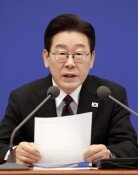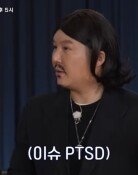Possibility of Negotiations Between DPRK and U.S. Within Framework of Six-Party Talks
Possibility of Negotiations Between DPRK and U.S. Within Framework of Six-Party Talks
Posted February. 28, 2005 06:13,
We urge North Korea to return to the next round of six-party talks without delay and discuss its concerns directly at the negotiation table. It is because the six-party talks are a wide negotiation mechanism through which we can discuss and negotiate all issues, including North Koreas nuclear development programs.
This is the summary of the results of the conference for six-party talks among chief representatives from South Korea, the United States, and Japan, which were held in a detached office of the Central Government Complex among Deputy Minister of Foreign Affairs and Trade Song Min-soon, Christopher R. Hill, the U.S. Ambassador to the Republic of Korea, and the director general of Asian and Oceanian Affairs Bureau of Japan, Sasae Kenichiro, on February 26.
It implies that this delivers a compound message to North Korea, which demanded fostering conditions for resumption of the six-party talks that theres no given condition to foster the conditions outside the conference, but North Korea will not be disappointed if it comes to the negotiation table. Now the option belongs to North Korea again.
The possibility of Bilateral Meetings between the DPRK and the U.S. within the Framework of Six-Party Talks
It has been reported that Christopher R. Hill, the U.S. Ambassador to the Republic of Korea, a U.S. chief representative, expressed his opinion in the conference, saying, We have a full intention to meet North Korean representatives separately and discuss if it is within the framework of the six-party talks.
It is different from the fact that the U.S. has been moderate even in making contact between North Korea and the U.S. within the framework of six-party talks in the first, second, and third rounds of six-party talks so far in order to prevent North Koreas nuclear issues from being recognized as a question pending between North Korea and the U.S. in the world community.
A South Korean government official said that North Korea should come to the negotiation table so that it can feel this flexibility of the U.S. directly. South Korea, the United States, and Japan share the same recognition that they care for any kinds of meetings within the six-party talks to be held if it is helpful for early solutions to North Koreas nuclear issues.
The official said that the expression, The six-party talks are a wide variety of negotiation mechanisms in the conference among three nations includes this kind of meaning.
It Depends on China
Deputy Minister Song, the South Korean chief representative, said in a press conference on February 26 that South Korea, the United States, and Japan evaluate the constructive role of China as a host nation of six-party talks and expect Chinas efforts for early resumption of the next round of six-party talks to be enhanced.
China carries the heavy burden of responsibility to explain the results of the conference among South Korea, the United States, and Japan to North Korea and to urge North Korea to come to the negotiation table of the next round of six-party talks. As long as North Korea does not come to the negotiation table, the enlargement of flexibility toward North Korea within the six-party talks, a slogan for which the South Korean government put forth all its energy, will have no meaning. Concerning the time limit of North Koreas returning to the negotiation table, Deputy Minister Song said that the common thought of participating countries in the six-party talks is that there is no fixed time, but that it cant be delayed indefinitely. It implies that there is not enough time for North Korea to decide whether or not it will participate in the next round of six-party talks.
Hyong-gwon Pu bookum90@donga.com







